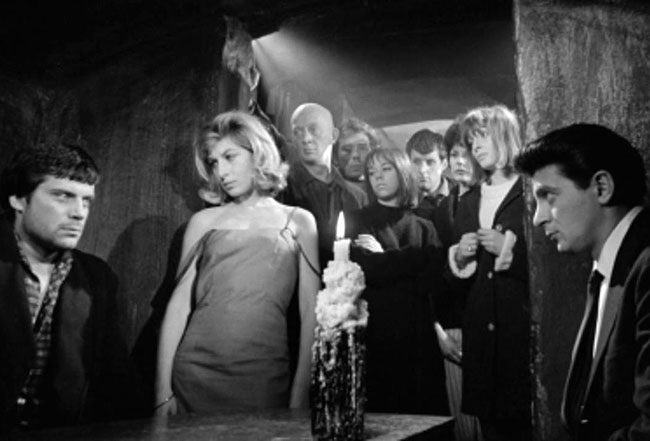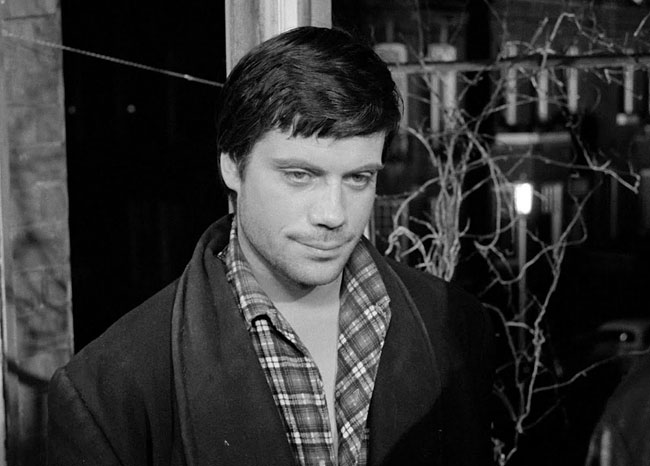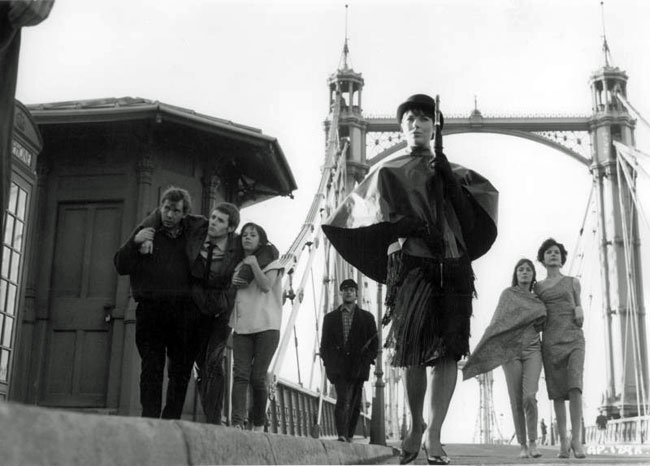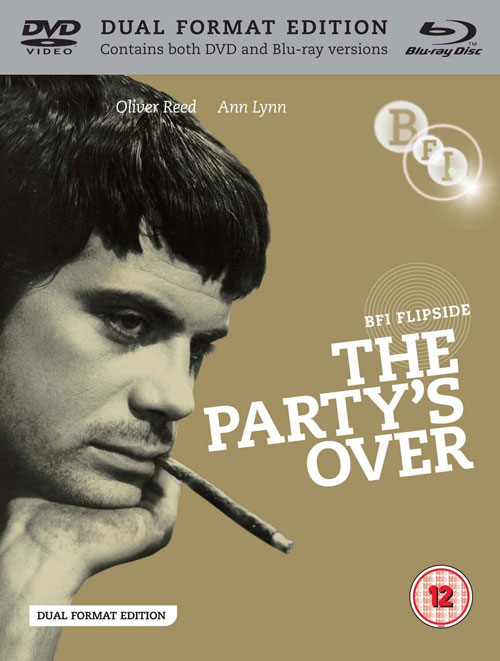
Once something of a lost classic, Guy Hamilton’s The Party’s Over is currently available to buy at a discounted price.
It was ‘lost’ because once upon a time it had a bit of trouble with the censor and went out of general circulation from the mid-1960s through to fairly recently when it was put back together and restored to its best by the BFI’s team of movie obsessives known as Flipside.
Director Guy Hamilton went onto bigger things, involving himself in everything from Bond classics to the original Superman flick, but The Party’s Over remains his most controversial work. At least at the time.
This tale of a beatnik gang and the mysterious disappearance of an American heiress wouldn’t qualify as an ’18’ these days, but back in the 60s, it was cut severely by the British Board of Censors and packed off with an ‘X’ certificate. But it’s hard to tell you why without giving away the ‘twist’ in the movie. So you’ll just have to take my word on it. Let’s just say it is released as a ’12’ these days.
Oliver Reed heads up the cast as a gang leader (not for the first time), specifically as Moise, head of a gang of pre-swinging London beatniks known as the Pack – dropouts and bohemians who spend their time partying and living on the edge of ‘normal’ society.
Their behaviour has attracted an additional member, Melina (Louise Sorel), the daughter of a rich US industrialist who is enjoying her ‘freedom’ before marrying a ‘straight’ employee of her father’s company, Carson (Clifford David). But it’s all about to come to an end as Carson lands in Britain, sent by her father to take her back home.
She’s not keen, so when Carson does arrive in London, he’s given the runaround by the bunch of hipsters, determined to keep her from his clutches and to have some fun at the same time.
But eventually, the clowning ends and the atmosphere turns a little darker. Carson is taken to one of the beatniks’ parties by Moise’ jazz singer girlfriend Libby (Ann Lynn), but arrives to find a sombre mood and Melina’s clothes being worn by various members of the gang.

Carson is also befriended by one of the group, Nina (the stunning Katherine Woodville), who lets him know more details of what has happened that night. But it’s only when one of the gang members commits suicide and Melina’s father hits town that the whole grizzly tale starts to unravel and with it, the Pack itself.
In some ways, The Party’s Over is very much of its time – beatniks, jazz, rich girls hanging out with London’s bohemians and of course, that early 1960s London scenery. But take away that backdrop and the movie could have been made in any era, with any youth cult you want to throw in. Not least, because the story that underpins it is a strong one.
Not just your average ‘youth gone wild’ tale, The Party’s Over flips from the parent-worrying antics to something of an unfolding mystery, throwing in a love story or two as an added bonus. Will Carson find Melina? Does Carson want to find Melina? Why are the Pack being so secretive? Why has one member thrown himself off a building? And will the Pack finally break their silence about what happened during that night?
But it’s also a movie that does a good job with the characters, which is where Reed in particular excels. He’s the tough, but well-spoken leader of the pack, the man they all listen to, but at the same time, he’s a man scared of the gang he’s created, desperate to get away from them. Deep down, he despises them all – except the ones who dare to stand up to him. Unfortunately, the latter are the ones who, in the end, don’t care for being with him.

The film certainly isn’t just about Reed though, Katherine Woodville constantly steals the camera as Carson’s blossoming love interest, while Carson himself cuts a fine figure as the Ivy League-clad straight man on the hunt for the truth. Not sure about Mike Pratt (of Randall and Hopkirk) as a Cuban artist, but you can’t have everything.
To be honest, The Party’s Over has probably capitalised significantly on its notoriety over the years, making it a hotly-anticipated release when it did land.
In truth, it would probably have sneaked out as a budget release like The System if the censor hadn’t been so scissor-happy. But that’s not a criticism of the movie itself, which is actually very good.
Beatniks (a far better portrayal than the much-talked-about Beat Girl for sure), jazz (via a John Barry soundtrack), a good and cleverly-developing storyline, excellent performances, strong direction from Guy Hamilton, an early 60s London backdrop (check out the opening scene for an iconic image) – it ticks all the boxes for me and is certainly one of the better Flipside releases.
If you go in expecting something shocking and controversial, you’re liable to be disappointed. If you are on the hunt for a good dose of teenage rebellion and a movie to keep your interest for the full course, you’ll take to The Party’s Over.

Oh, it’s now a cheap release too. Like many of the Flipside discs, this one DVD/Blu-ray release is now just £6.99. You can buy it here if you want a copy.
Extras on that set include the original theatrical cut of the movie, before the restoration job plus a short movie called The Party. Made in 1962 by a bunch of art students, this rough ‘n’ ready tale is a fly-on-the-wall look at a typical party in the capital – home brew beer, dancing to jazz 45s, fumbles, chat in the kitchen, being sick, going for a walk, coming back, realising the person you met earlier is less appealing when sober and of course, the walk home as daylight breaks. It could be any party in any year. Which is why it’s so fascinating.
But not as fascinating as Emma (1964), the second short movie. On the face of it, a young girl’s playtime around Highgate Cemetery both on her own and later with a young boy. But look deeper – this short is actually a symbolic journey through life – with a rather abrupt and unexpected ending. Another nice find by the Flipside crew.
Great film, nice package, if you love movies of this particular era, The Party’s Over release from the BFI/Flipside should be on your shopping list.
Find out more at the Amazon website









Does anyone know what the song is that’s playing on the jukebox?